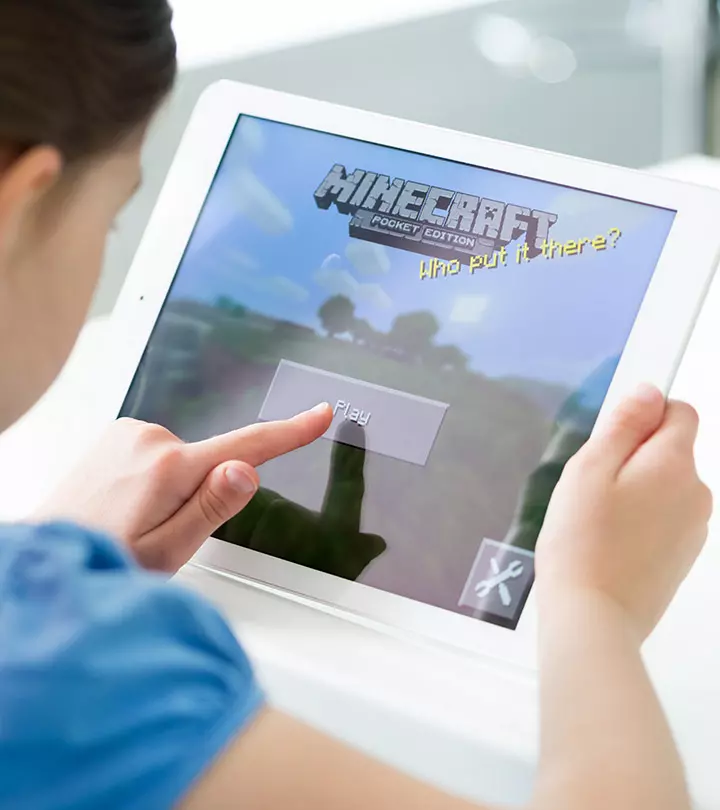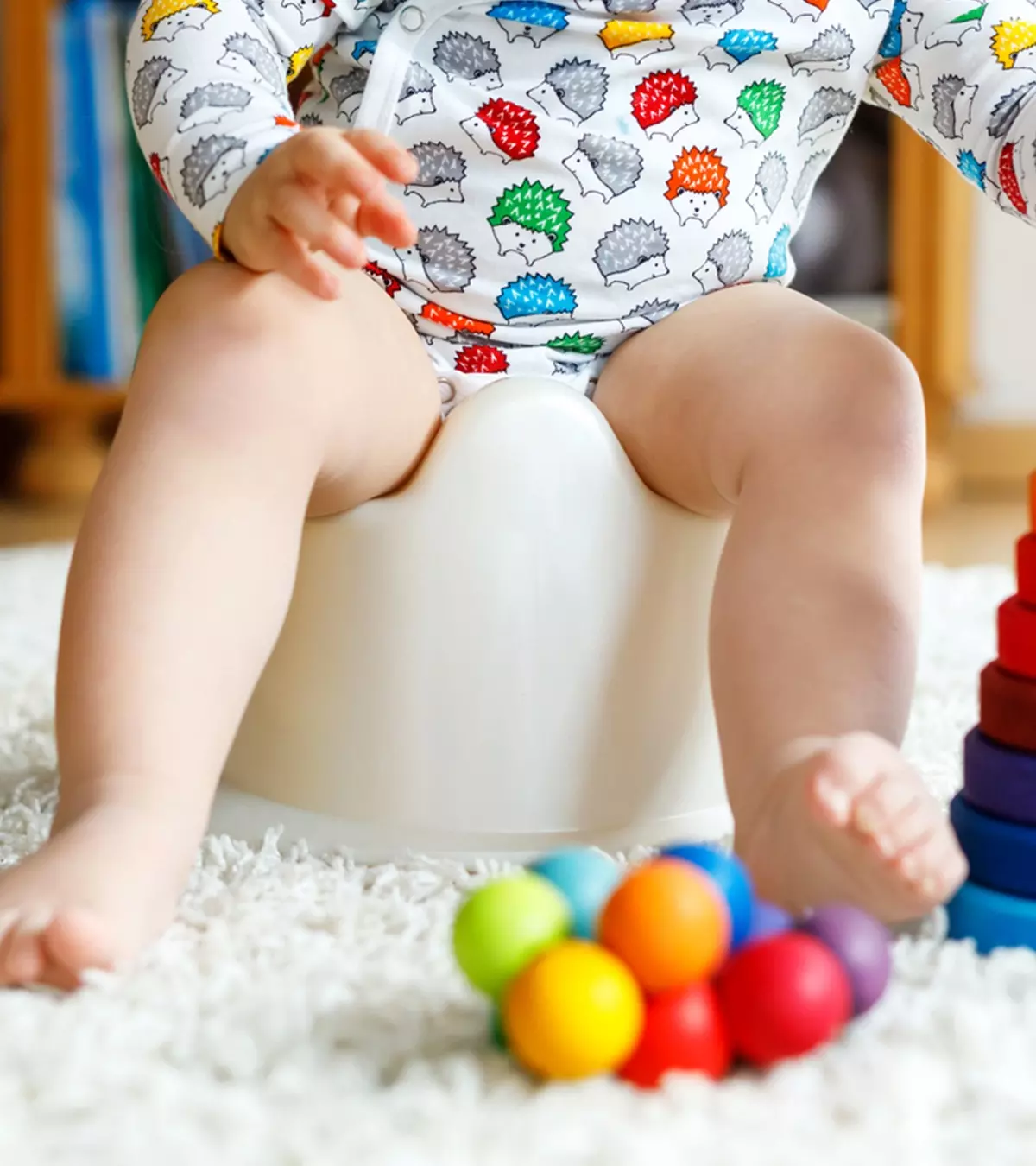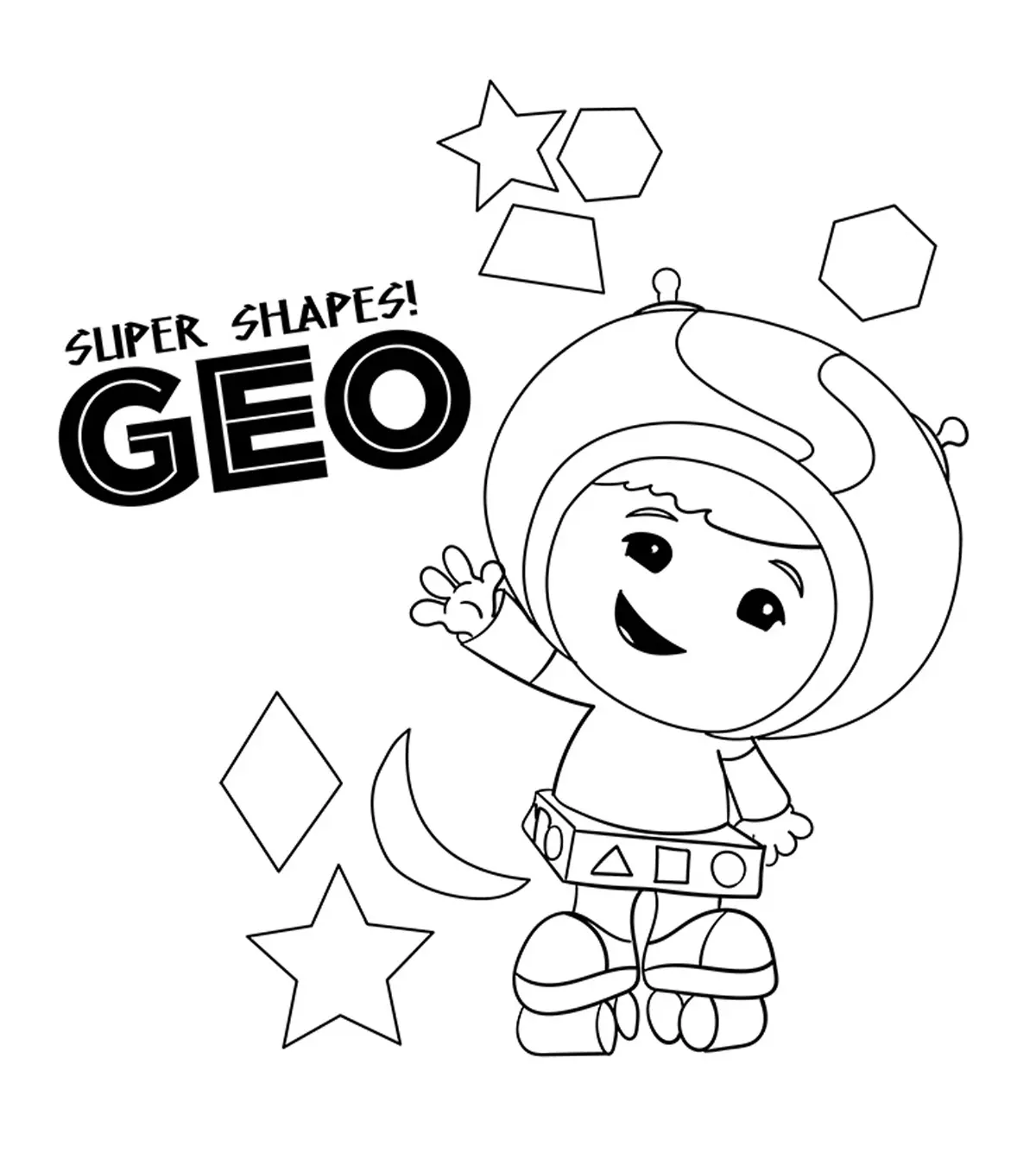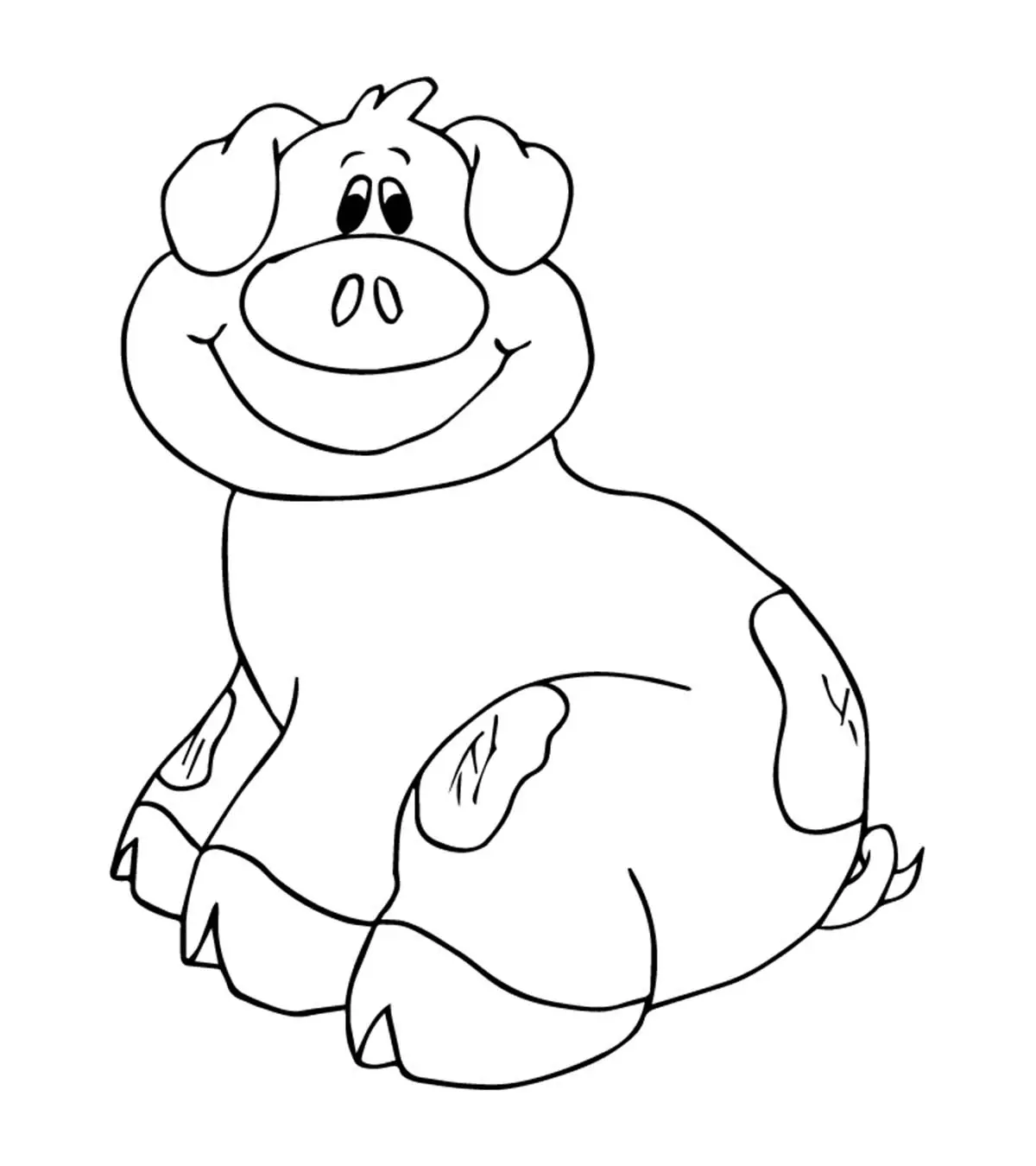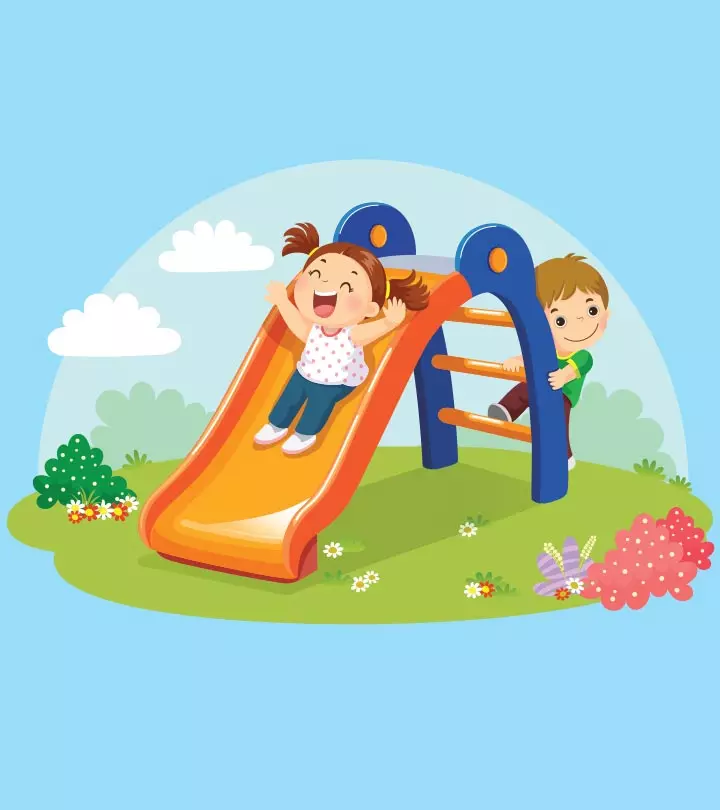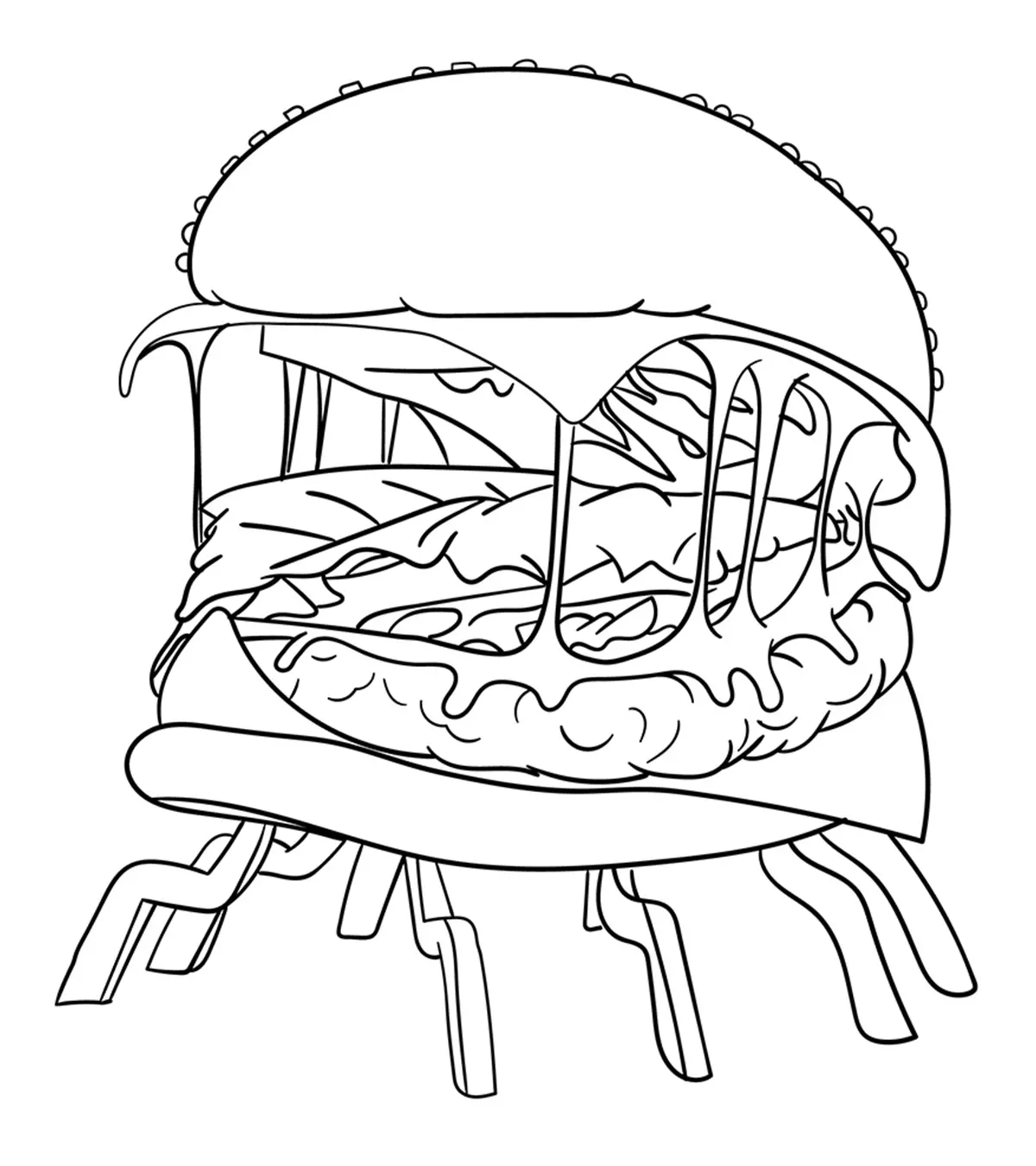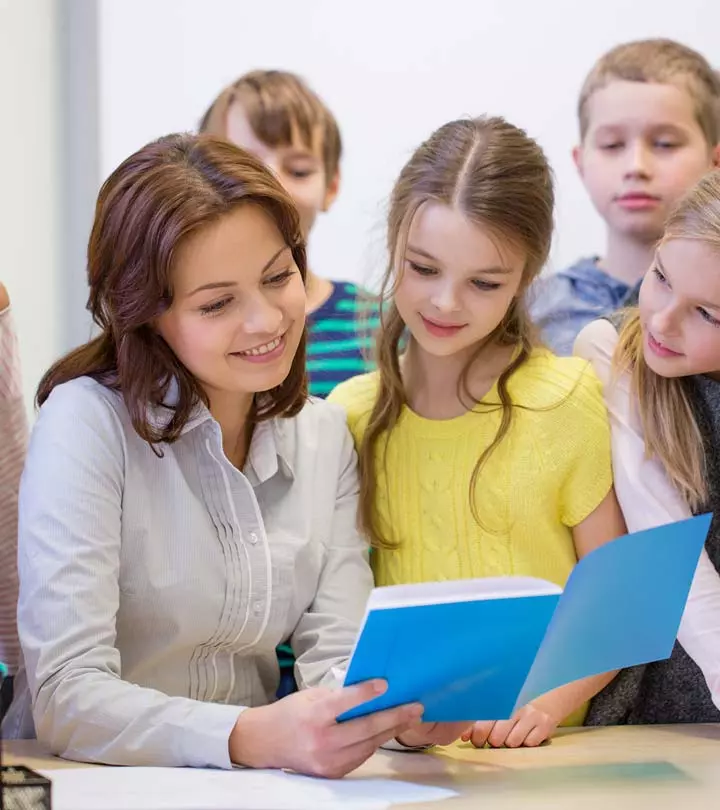
Image: Shutterstock
Kids find it especially tough to break the ice with strangers. Some of them slink around at corners instead of mingling with other children at parties. So introduce conversation games for kids to foster interaction with others. Playing these games can help children’s speaking and listening skills by teaching them essential vocabulary and also helping them become critical thinkers. The games actively promote creativity and social interaction, which makes them incredibly useful for the holistic development of a child. Conversation games and activities also encourage kids to voice their feelings and thoughts, which develops their confidence, self-esteem, and social skills. The discourse below on ten excellent conversation games and entertainment activities can turn your bashful kid into a chirpy chatterbox in no time.

Key Pointers
- Conversation games and activities for children boost communication and listening skills and foster strong relationships.
- These should be based on the age and interest of the children and can be played during parties, social events, or school gatherings.
- Exciting games like Human Experience Bingo and Find Your Partner can help children improve their social skills.
- From fun indoor games like Hide And Speak to popular outdoor activities like Scavenger Hunt, these are fit for all occasions.
Top 10 Conversation Games For Kids
Give the following conversation games and activities for kids, and try to encourage your kids to express themselves freely.
1. That How We Roll
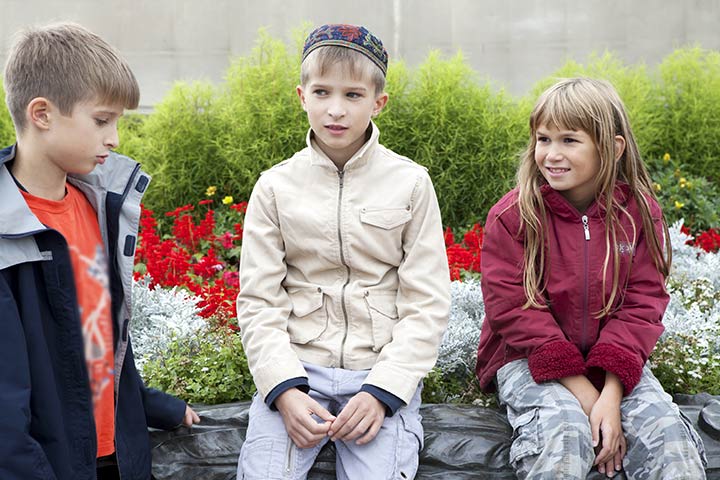
You Will Need:
- Pen
- Paper
- Dice
How To:
- You can practice the learning activity for a public speaking event or in a class.
- Write a list of questions that you would want the kids to answer. The questions can be icebreakers or the ones that elicit opinions or thoughts.
- Give each child a copy of those questions and make sure they’re numbered.
- Now tell the students to take turns at rolling the dice. The kids have to answer the number they get on the dice. Answering these questions may also improve language development and verbal skills among children.
2. Human Experience Bingo
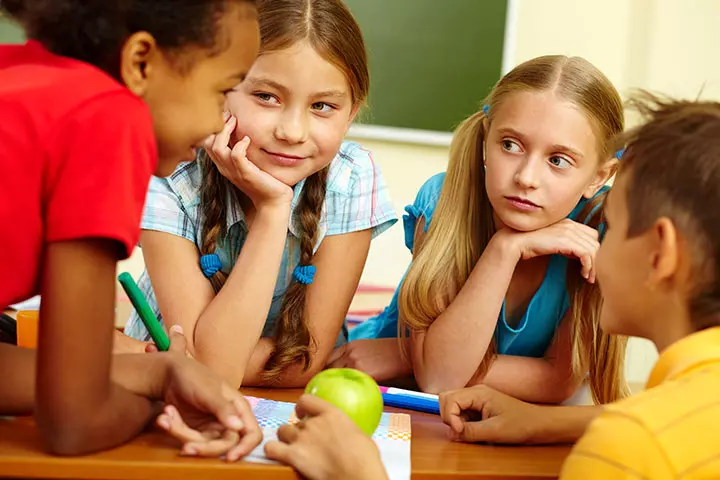
You Will Need:
- Pen
- Paper
- Bingo sheets.
How To:
- Tell the kids to make a list of all their positive experiences, as an adventurous holiday, scuba diving and so on. Work on the list until you get 30 to 40 experiences.
- Now give the kids a blank bingo sheet and tell them to write one experience in each box.
- Now make the kids sit facing each other in two rows of chairs.
- Now give the pairs two minutes to talk and discuss with others. This exchange of dialogue also helps improve their social skills.
- The game will continue until players get five spaces in a row on the bingo card.
3. Trait Roulette
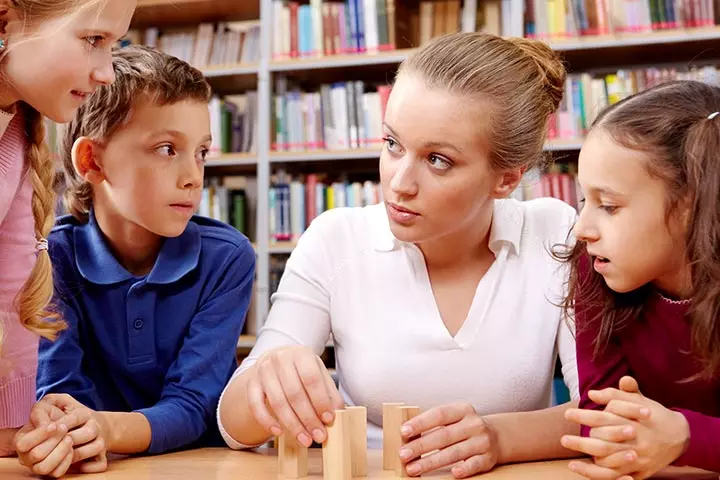
You Will Need:
- Pen
- Paper
How To:
- This game is ideal for kids who know each other well.
- This game requires the cooperation and teamwork of the children to come up with a list of character traits that a person might have. Make sure they stick to positive attributes. Examples include generous, adventurous, and wise.
- Write the attributes on slips of paper and put in a bag.
- Let each child play this game by turn-taking in picking a character trait from the bag.
- The kid now has to announce who they think possesses that character trait. They also have to explain why they made that choice.
 Do remember
Do remember4. Story Starter Hot Potato
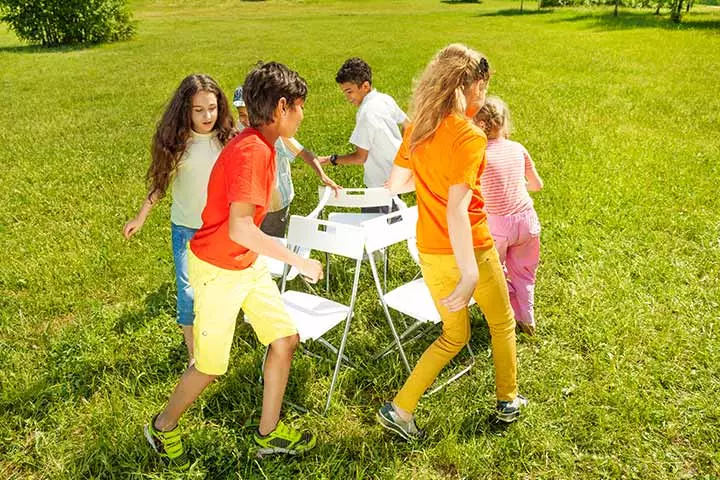
You Will Need:
- Paper
- Pen
- Chairs
- Music player.
How To:
- Write a few beginnings of a story.
- Divide the kids into small groups of five members. Tell them to arrange the seats in a circle.
- Give each group a story starter at the beginning of the rounds and play music in the background.
- Tell the kids to move around the circle. Now tell one child to give the other player of the group a sentence of the story.
- Now tell the other kid in front of them to continue the storytelling. Kids have to go around the circle, adding one sentence at a time until you give a signal or the music stops.
- The player struggling to think of a sentence when the music stops will be disqualified.
- As an improvisation, you can continue the second round with the same story or give a new story starter.
5. Hide And Speak
You Will Need:
- Index cards
- Marker
How To:
- Prepare several questions and write each on the index card. The questions must be comprehension questions, vocabulary issues or get-to-know-you questions.
- Divide the kids into two teams. Explain to them that you have dinner cards throughout the room.
- At the call of ‘go’, the kids have to start finding the card. They have to bring the cards to you and then answer the question on it.
- In this form of question games, if the student answers the question on the card correctly, they will earn the card for their team. If they are unable to answer, then they have to get someone else from the team to respond to the question.
- The team that has most of the cards will be the winner.
6. Secret Message
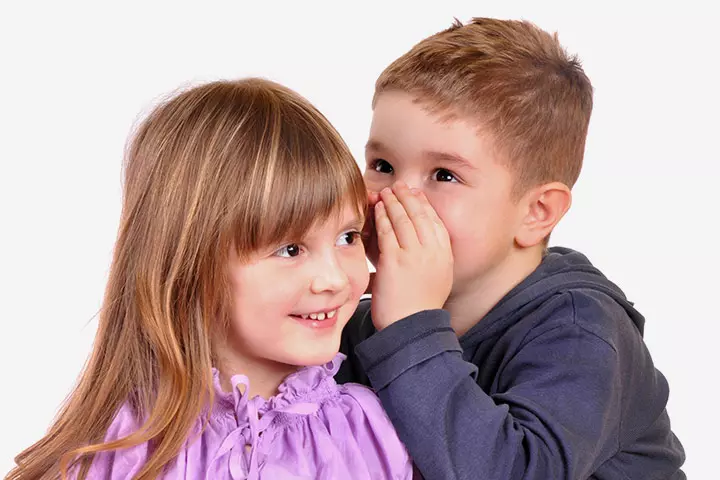
You Will Need:
- Nothing
How To:
- Tell the kids to sit in a circle or line.
- The first child has to whisper a short message to the other child in line.
- The message has to pass from one player to another around the circle.
- The last person in the circle has to announce the message to the whole group.
- Everyone will laugh at how the message evolves through the subsequent exchange.
7. Find Your Partner

You Will Need:
- Paper
- Pen
How To:
- Make a small slip of paper for each kid. The paper should have one word that goes with the other word on another piece of paper. For example, paper-pen, spoon-fork, day-night and so on. Fold the papers and put in a bowl or hat.
- Now tell the kids to take out one slip of paper from the hat, one at a time.
- When you say ‘go,’ the kids have to move around and try to find their partner.
- The kids now have to come to you to ascertain whether they have chosen the correct partner.
- The partners now have to work together to create new pairs of words in this popular form of word games.
 Quick tip
Quick tip8. My Name Is Anne
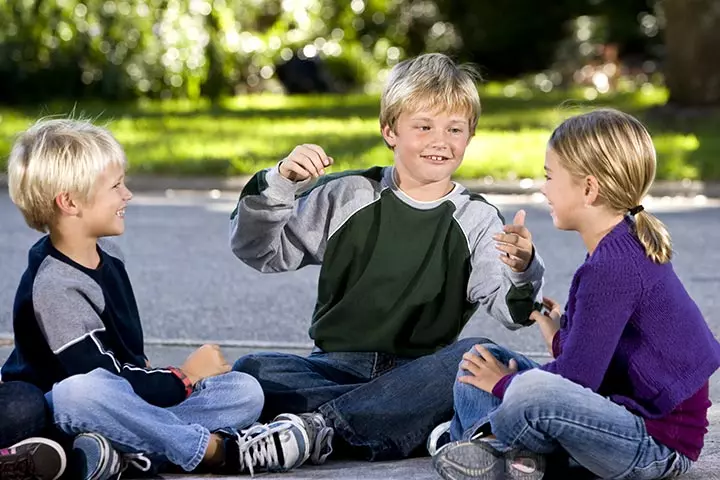
You Will Need:
- Nothing
How To:
- The conversation game lets children take turns at adding a name and a thing in the alphabetical order.
- Tell the kids to sit in a circle.
- Select one kid to start the game. He has to call out a name and the thing starting with A, for example- “My name is Anne, and I love apples.”
- The second player has to say ‘My name is Bobby, and I love blueberries.”
- The banter will go on with each player reciting and adding to the chain.
9. I Spy
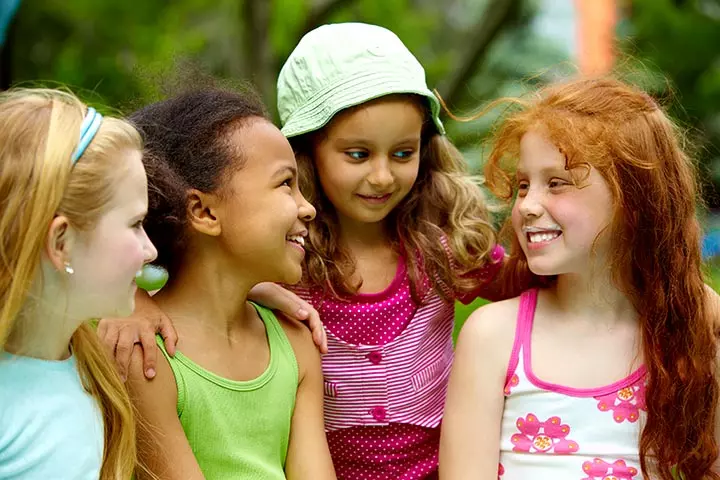
You Will Need:
- Paper
- Pen
How To:
- Write the names of the participants on slips of paper. Fold and put in a hat.
- Have the kids sit down in a garden or room.
- Take our one slip from the hat and ask the child to start the game with the phrase “I spy with my eye something…”
- They have to add something like a mouse made out of wood or anything they can think of.
- The other kids have to take turns saying what item it is.
- In this rendition of popular guessing games, the kid who identifies correctly will be the spy.
10. Fact Or Fiction
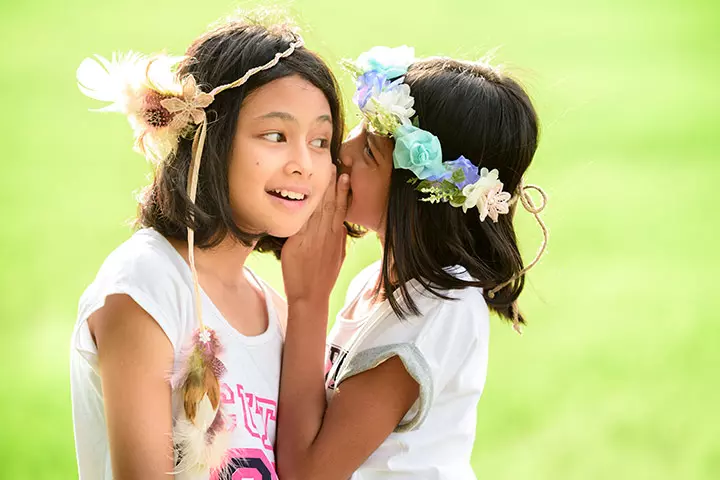
You Will Need:
- Nothing
How To:
- Divide the children in pairs.
- The kids have to take turns at telling two true things about themselves and one false.
- The other person has to guess what they believe is fact and fiction.
- The game will let the kids know each other.
11. Scavenger Hunt

You Will Need:
- Items to hide
- Index paper and marker.
- Prize for the winner
How To:
- Pick a safe location with a lot of hiding spots.
- Choose items to hide. These could be household objects like a mug or toys.
- Hide the items in boxes with a set of trivia questions.
- Players will have to answer the questions to get the next clue.
- The player who finds the maximum number of items wins.
12. Tongue Twister
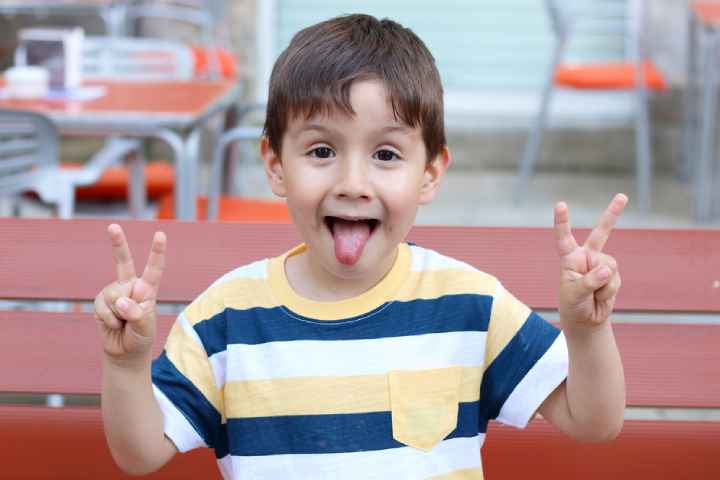
You Will Need:
- Timer
- Prize
How To:
- Give a difficult-to-pronounce word or sentence to the players.
- Start the stopwatch for 1 minute.
- The players will have to repeat the twister quickly and accurately as many times as possible inside the minute.
- Give the prize to the player with the highest number of clear repetitions.
Frequently Asked Questions
1. How do I start a conversation at school?
Starting a conversation at school can be nerve-wracking for many children. You can begin by greeting the person with a genuine smile and making eye contact. Ask casual questions like how their day was, their plans for the evening, etc. Avoid giving hurtful comments to others. Also, make sure that you are calm and confident.
2. What do my kids generally chat about?
Children generally like talking about toys, games, movies, hobbies, and anything exciting and adventurous. But, of course, their topic of conversation may depend on their friend circles. They may also like talking about their friends and family.
3. What are some benefits of conversation games for children?
Playing conversation games offers numerous benefits for children. It improves communication skills, encourages critical thinking, fosters creativity, strengthens relationships, and promotes active listening.
4. How can conversation games help improve a child’s communication skills?
Conversation games could be an excellent way to enhance communication skills in kids. They provide ample opportunities to express ideas, develop vocabulary, actively listen, encourage meaningful dialogue, and foster effective communication habits.
5. How can conversation games foster creativity and imagination in children?
Conversation games can encourage children’s creativity and imagination by encouraging them to come up with innovative concepts, employ their imagination to solve challenges and explore various points of view.
Whether it’s a school gathering, a house party, or just a venue where kids meet for the first time, some children have the skill to befriend others in no time. On the other hand, others may find it difficult to strike up a conversation. All of the above conversation games for kids, such as human experience bingo, trait roulette, hidden message, I-spy, and others, could be helpful icebreaker activities for children. These games will positively help your children, and they will enjoy themselves while engaging in role-playing activities and memory games. So no more anxiety ridden birthday parties or gatherings for your kids.
Infographic: Conversation Games For Children
Conversation starter games can be a fun and effective way to help children practice their communication skills and meaningful social engagements. These games can benefit anyone who is shy or faces difficulty initiating conversations. The following infographic provides a list of conversation games for children to try. Check and see which ones work for your child.
Some thing wrong with infographic shortcode. please verify shortcode syntax
Illustration: Best Conversation Games And Activities For Kids
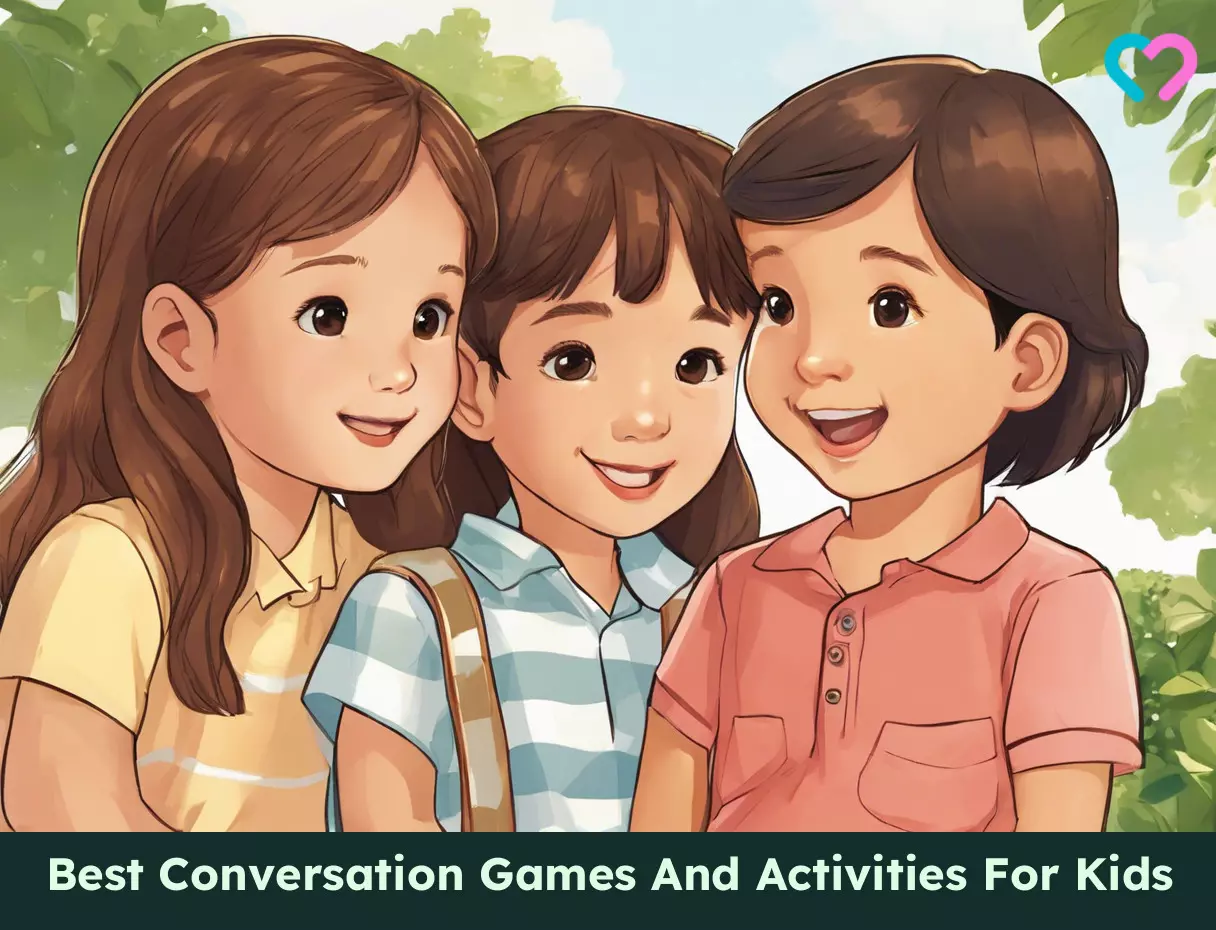
Image: Stable Diffusion/MomJunction Design Team
Explore some of the best speaking activities that are appropriate for students of all age groups in this video. They will help enhance your child’s English speaking proficiency.
Community Experiences
Join the conversation and become a part of our nurturing community! Share your stories, experiences, and insights to connect with fellow parents.
Read full bio of Ashley KZ Showell
Read full bio of Debolina Raja
Read full bio of Harshita Makvana
Read full bio of Nisha Bharatan






